Most power outages last only a few minutes, but some can last for days or even several weeks. While this may seem like a broad time frame, numerous factors can affect how quickly you get your power back on. Depending on how well you know your utility company, you might be able to estimate the time of a power outage based on the following:
1. What Caused the Power Outage
The cause of the power outage will almost certainly affect how long it takes for power restoration.
Utility workers can fix a minor incident, such as a fallen power line, in around 2-3 hours. But when the cause of a blackout is severe weather or a natural disaster, you can expect to be out for several days and even months in some extreme cases.
If a power pole comes down, it could be at least a day before the utility company has it back up and running. A serious situation involving a whole power plant may leave you without electricity for around a week. Power from other plants is brought onto the grid to compensate for the lack of electricity if a plant explosion or incident causes a shutdown.
2. Assessing the Damage
Finding out what and where the issue is can sometimes take the most time for utility workers. A fallen power pole needs little diagnosis, whereas problems that occur below ground in situations where cables have been ‘undergrounded’ can take much longer to figure out. Fixing a standard power cable can be accomplished in hours, however, underground wires can sometimes take weeks.
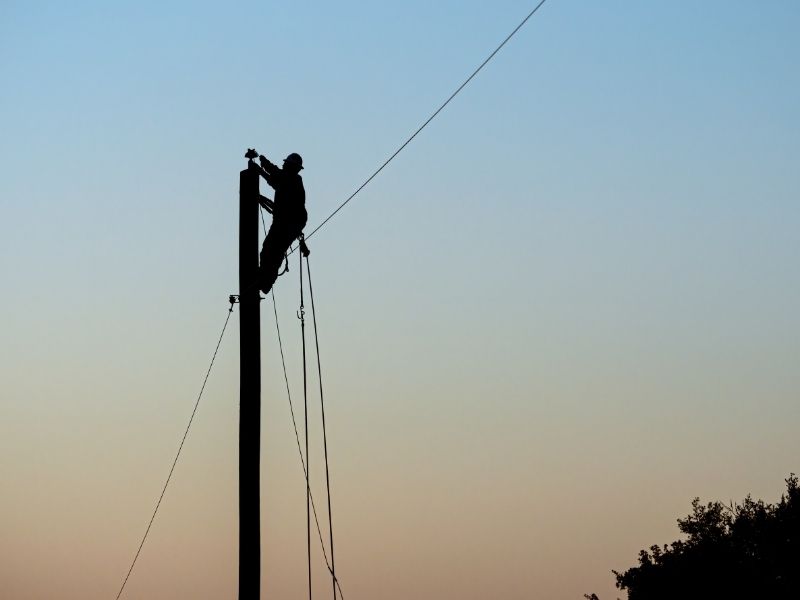
3. The Damage in Your Area
After a storm or disaster, utility companies, like any industry, follow a series of steps to restore power for the most amount of people as soon as possible. After assessing the damage, repairing substations, and priority facilities such as hospitals, repair crews then start to restore power for customers. More often than not, the closer you are to transmission lines, the faster you’ll get electricity. If your neighborhood has extensive damage, you may wait longer, especially if the problem only affects a few customers.
4. Available Resources
In the case of natural disasters, where the damage is widespread, utility workers may also be spread thin. Additionally, cities or urban areas likely have many more workers and appliances on hand to fix outages quickly. In the countryside or developing countries, lack of resources and skilled workers may delay repairs.
5. How to Fix the Damage
Some line issues are digital and repaired quickly and remotely. Physical damage requires a manual repair, which takes much more time. Before fully restoring power, lineworkers need to perform tests that might cause power trips and overloading, making the repair phase even longer.
6. Long-term Issues
When a grid overload causes a blackout, this requires more than just a fix. While these more significant grid issues are being addressed, utility companies arrange periodic rolling blackouts to avoid extended outages. In this situation, customers still experience an outage, but for a shorter, fixed time of a few hours. Customers are usually notified that a rolling blackout will happen so they can prepare in advance.
Prepare for Short & Extended Outages
Whether you experience winter storms every year or live outside the urban sprawl, a power outage can strike at any time. You can keep your family safe and your home running smoothly with a rechargeable battery known as a portable power station. With large capacities and the ability to power high-wattage appliances, an EcoFlow DELTA Series portable power station can become your lifeline during an outage:
Even when the gas and electricity are off, you can still prepare meals for your family using a microwave or hot plate. Keep your home warm with heaters or electric blankets, and of course, keep your mobile phones and laptops charged. A EcoFlow DELTA Pro can keep your refrigerator or chest freezer running for around a day so that you won’t lose groceries or frozen food.

Although gas generators are still relatively popular, they have limitations, especially during a natural disaster. Portable power stations, on the other hand, have fewer restrictions. There are no fumes or gas to store, so they’re safe to use inside to power your home during a storm. Since you can prep an EcoFlow portable power station in advance, they’re always ready when you need them. Recharge using a home AC outlet, solar panels, or in the case of EcoFlow DELTA Pro, from an EV charging station or Smart Generator. While you don’t have power, you can pull out portable solar panels to recharge your portable battery.
No matter if it’s an hour outage or a week-long blackout, use your portable power station to keep all your home essentials running. Compare our range of EcoFlow DELTA portable power stations to see which fits your needs best.
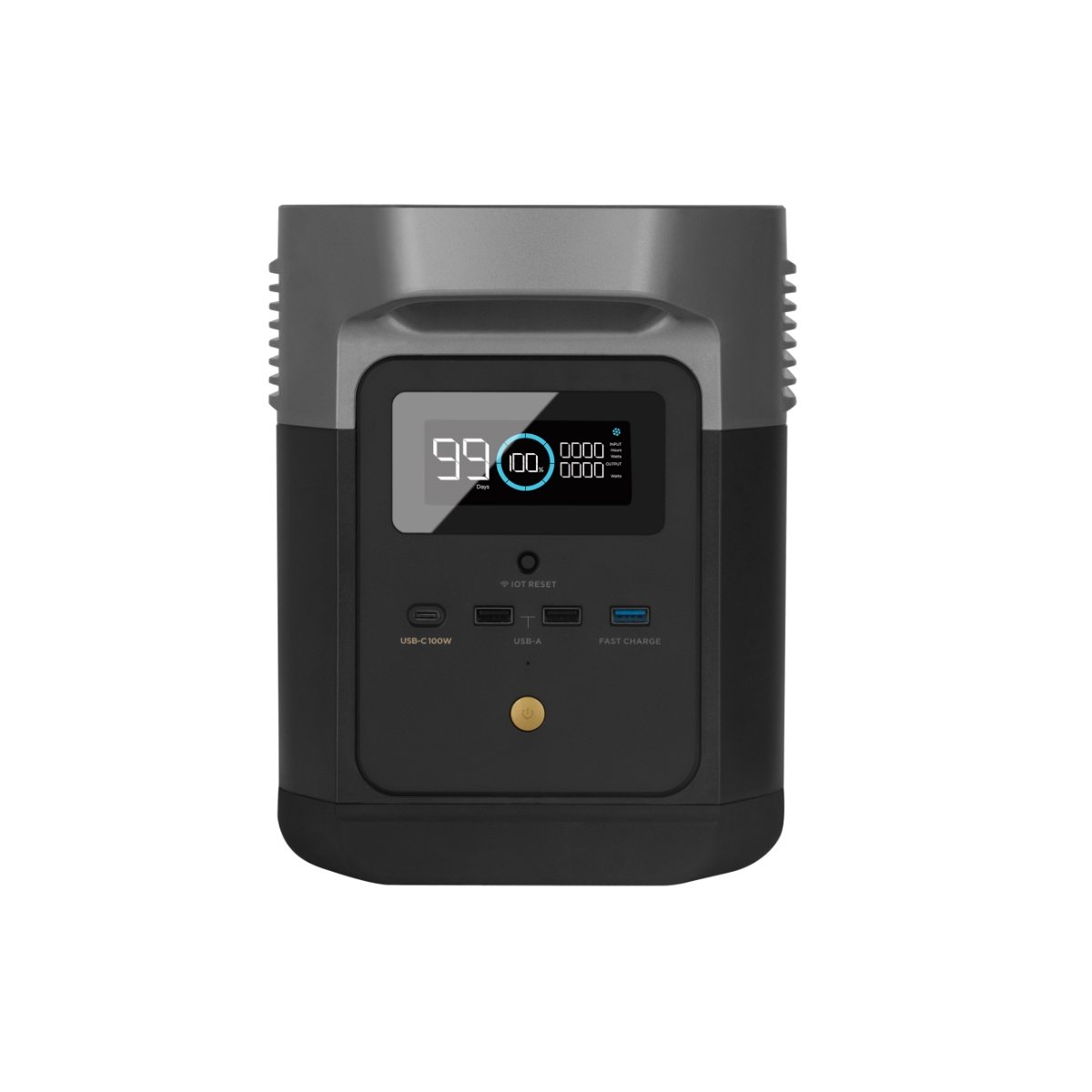
EcoFlow DELTA mini
| Capacity 882Wh |
| Phone (11W) 62 Charges |
| Laptop 60W 12 Charges |
| Mini Fridge 12 Hours |
| Blender (500W) 1.5 Hours |
| Coffee Machine (1000W) 0.7 Hours |
| Air Fryer (1500W) 0.5 Hours |
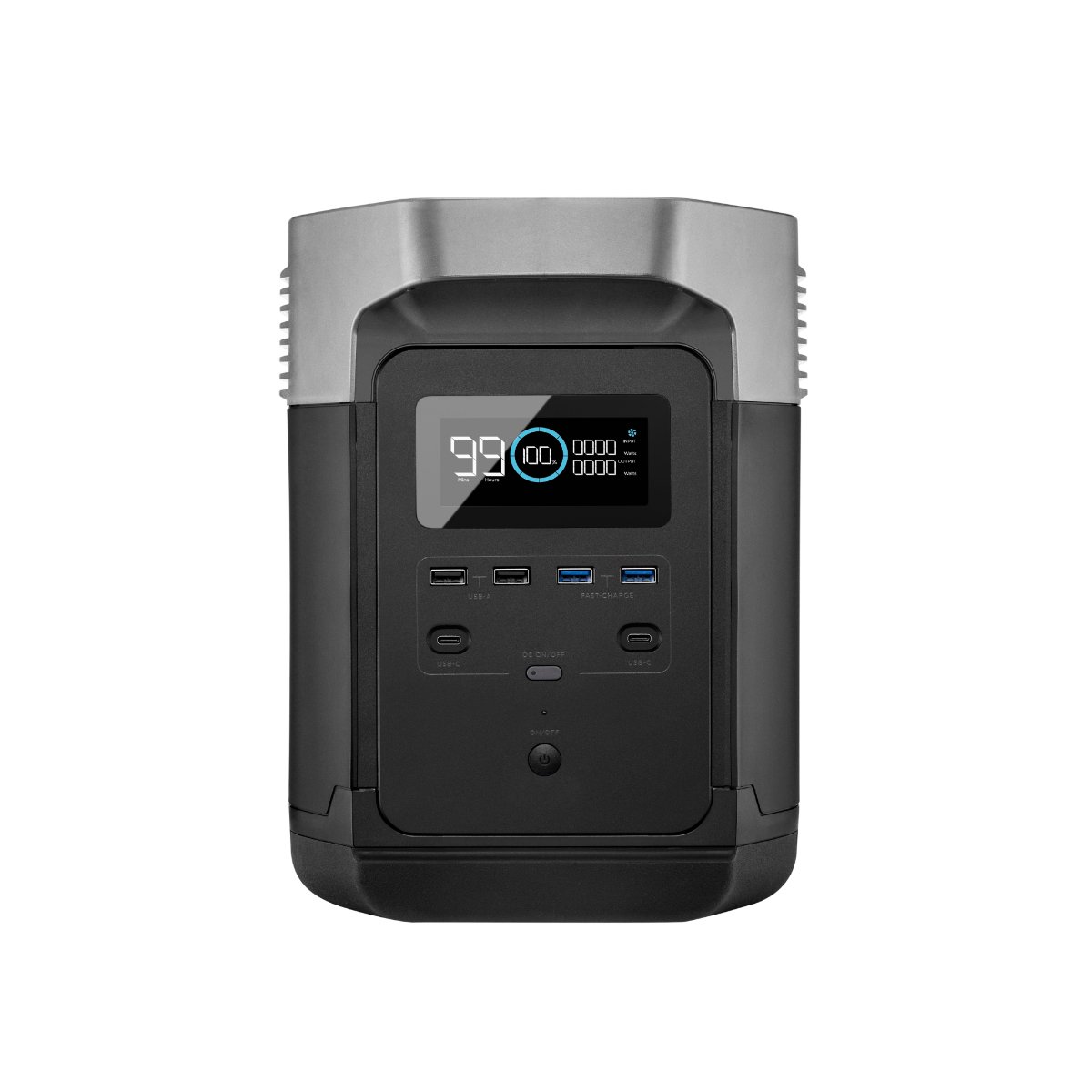
EcoFlow DELTA
| Capacity 1260Wh |
| Phone (11W) 104 Charges |
| Laptop 60W 19 Charges |
| Mini Fridge 19 Hours |
| Blender (500W) 2.1 Hours |
| Coffee Machine (1000W) 1.1 Hours |
| Air Fryer (1500W) 0.7 Hours |
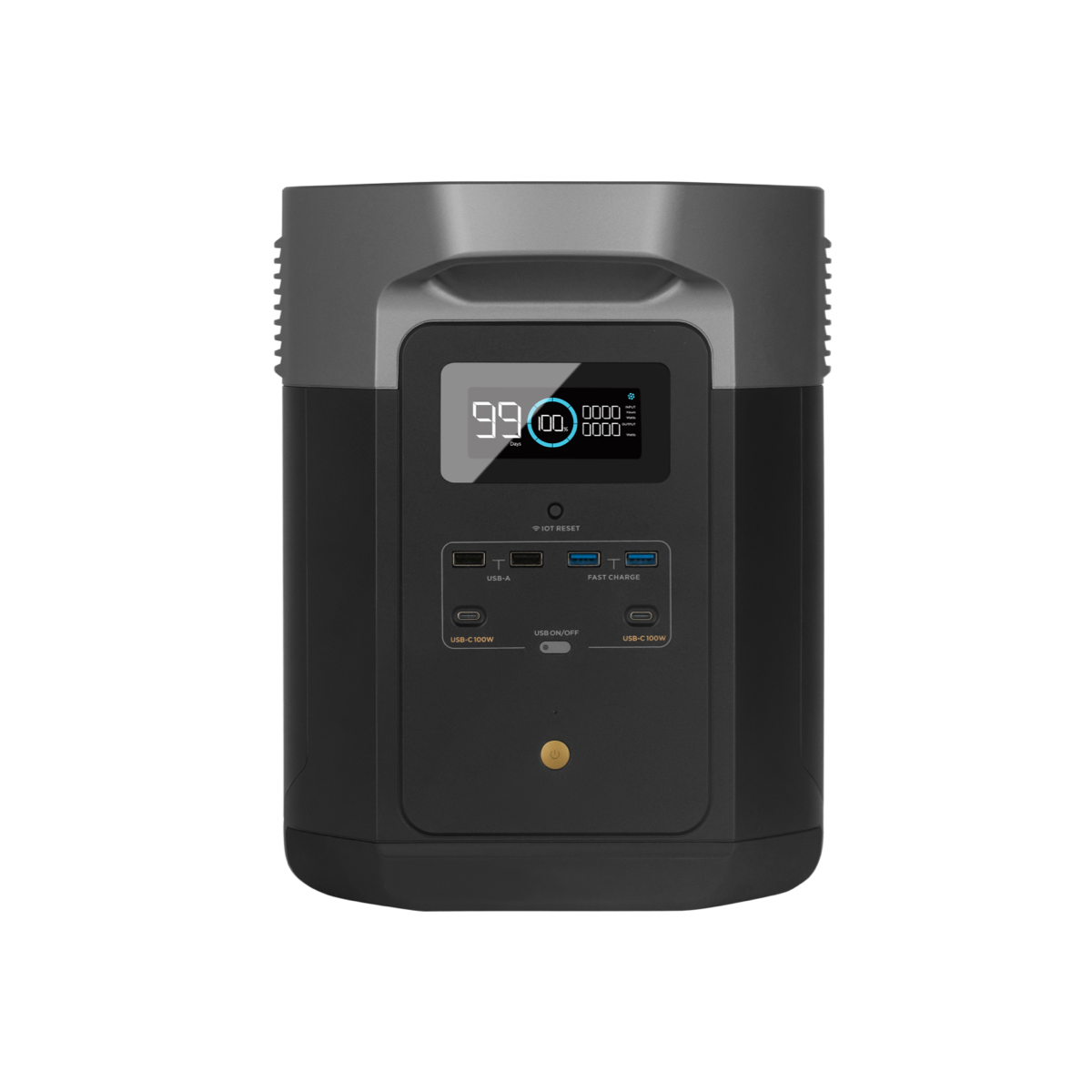
EcoFlow DELTA Max
| Capacity 2016Wh |
| Phone (11W) 175 Charges |
| Laptop 60W 32 Charges |
| Mini Fridge 33 Hours |
| Blender (500W) 3.5 Hours |
| Coffee Machine (1000W) 1.9 Hours |
| Air Fryer (1500W) 1.2 Hours |
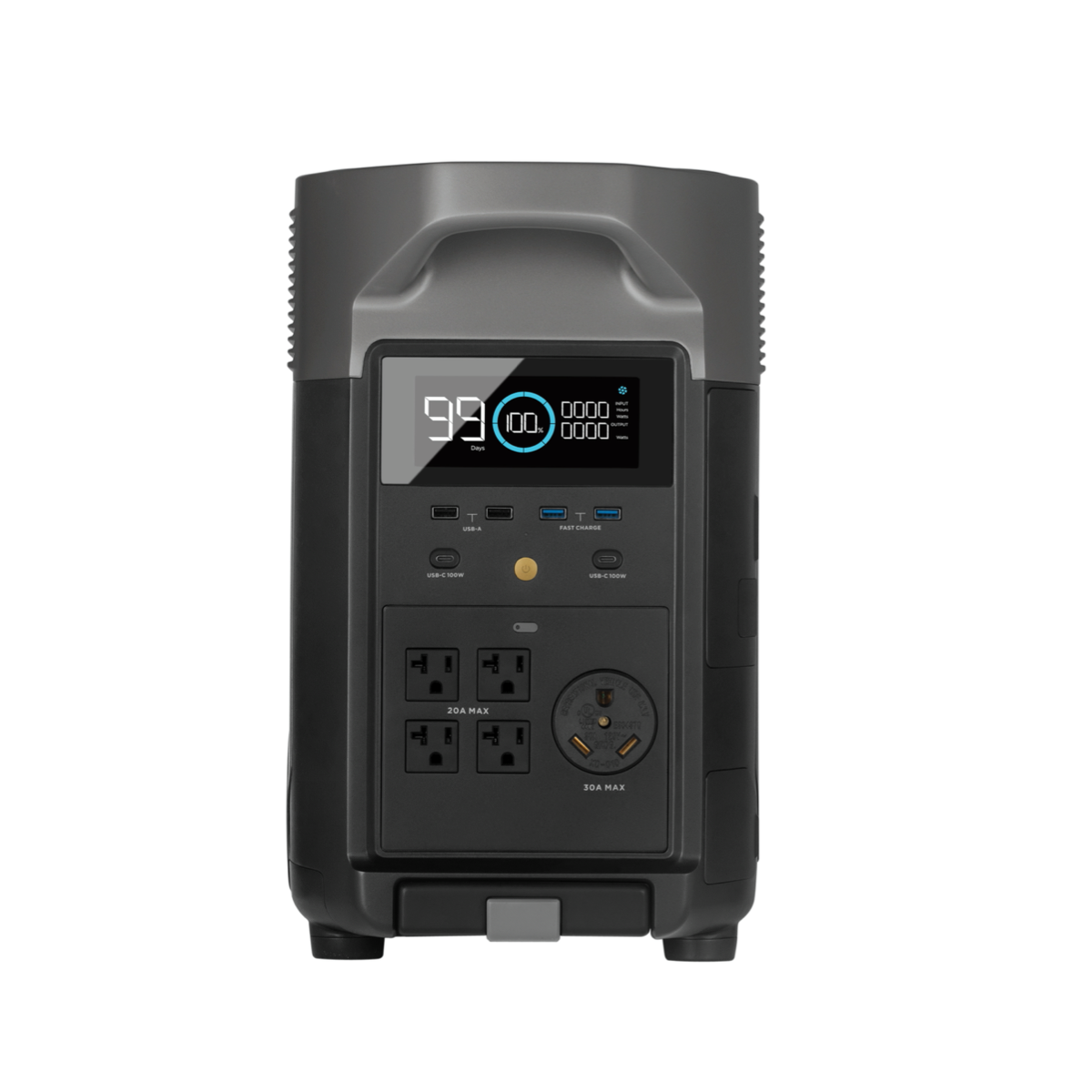
EcoFlow DELTA Pro
| Capacity 3600Wh |
| Phone (11W) 313 Charges |
| Laptop 60W 57 Charges |
| Mini Fridge 57 Hours |
| Blender (500W) 6.5 Hours |
| Coffee Machine (1000W) 3.3 Hours |
| Air Fryer (1500W) 2.2 Hours |